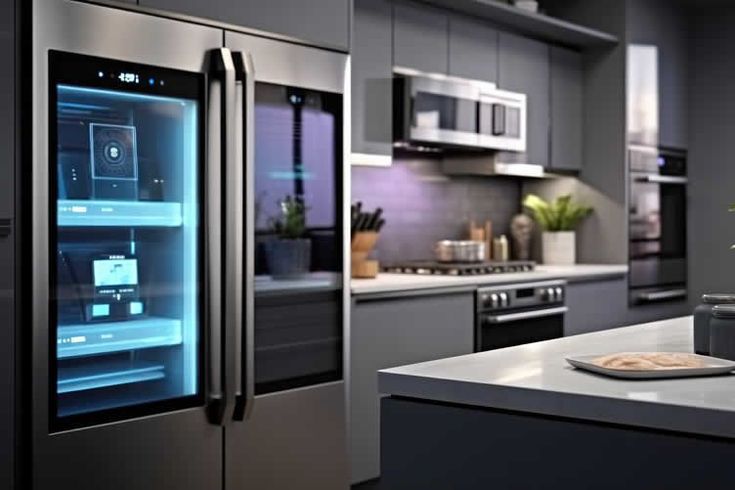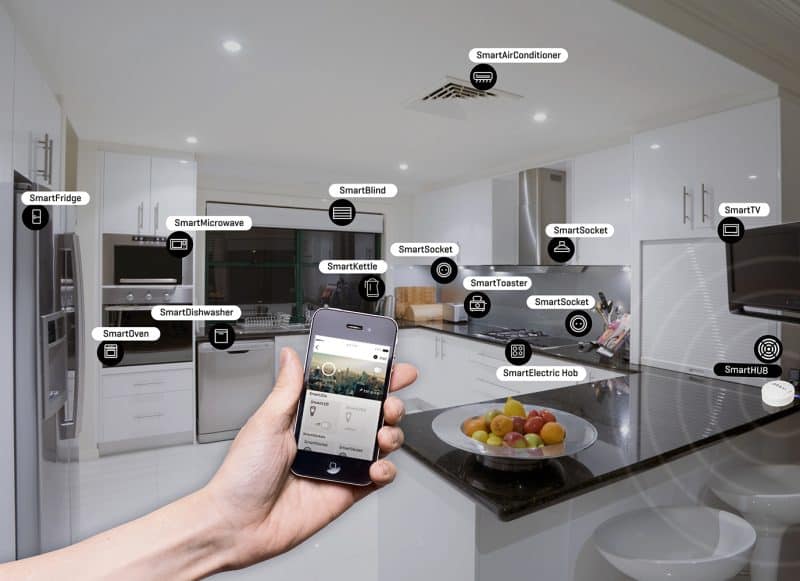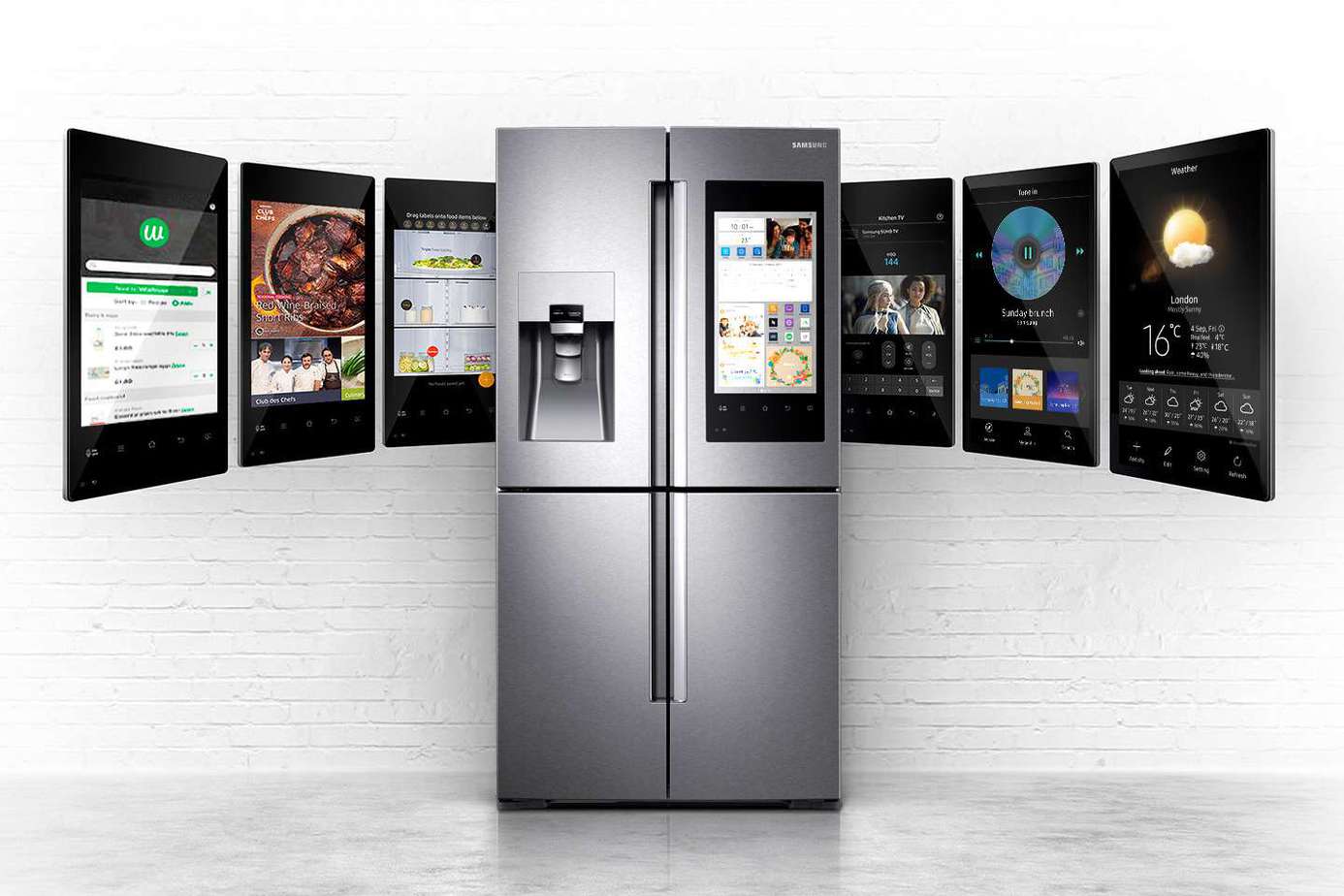Your Fridge Thinks You’ve Had Enough: The Rise of Smart Homes That Talk Back

You open the fridge at midnight, craving something cold and sugary to beat the Lagos’ night heatwave. Just as your hand reaches for the soda, a polite, robotic voice hums from the small screen in the fridge door: “It is late, maybe you should drink water instead.”
For a moment, you freeze, half amused, half unnerved. It is 2025, and your fridge now has opinions.
Smart homes are now on the rise. We are in a world where your appliances not only serve you but speak to you, sometimes even challenging your choices.
From voice-controlled ovens and learning thermostats to motion-sensitive lights and security drones, the home is no longer a passive space, it is an ecosystem of connected devices that sense, learn, and adapt to you, sometimes more than you’d like them to.

The New Digital Roommates
The smart home revolution began quietly with voice assistants like Amazon’s Alexa, Google Home, and Apple’s Siri. They started as tools to play music, set reminders, and check the weather. But in the last few years, the conversation has grown more complex.
Fridges now monitor your diet; washing machines schedule themselves; air conditioners learn your sleep cycle; smart mirrors suggest outfits based on the weather and your calendar. These devices are not just listening, they are learning.
According to a 2025 report by Statista, over 400 million smart home devices are active globally, with Africa showing one of the highest year-on-year adoption rates, especially in urban centers like Nairobi, Accra, and Lagos.
Nigerian startups are already designing localized versions of these systems,vones that adapt to unreliable power and patchy internet.
But the rise of this new “digital domesticity” also comes with its share of questions.
When the fridge begins to track your calories and your doorbell recognizes your face before you even get home, one has to ask: who is really in control?
Convenience with a Price Tag
The biggest appeal of smart homes is convenience. Who would not want to control the lights from bed or have the coffee maker start brewing just as you wake up? But every command, every pattern, every late-night snack is data and that data doesn’t stay in your kitchen.
Latest Tech News
Decode Africa's Digital Transformation
From Startups to Fintech Hubs - We Cover It All.
Tech giants and device manufacturers often store these interactions in the cloud to “improve service.” The fine print, however, reveals that such data can also be analyzed, sold to advertisers, or used to train future algorithms.
A 2024 study found that many smart device users were unaware that their data was being shared with third-party analytics firms. The same study noted that African consumers rarely read privacy policies, often because they’re written in opaque, legal-heavy English.
This lack of awareness makes users in emerging markets especially vulnerable to data exploitation. Imagine your fridge knowing not just what you eat, but how often you open it, when you tend to stress-snack, or what brands you prefer. For a marketer, that is gold and for privacy, that is a nightmare.
When Machines Develop a Moral Compass
There is something uniquely unsettling about a machine telling you what is good for you.
In some sense, the “talking fridge” represents more than just a technological leap, it represents a philosophical shift.
These devices are being programmed not only to follow instructions but also to guide behaviour. Some health-conscious fridges, for example, now come with settings that warn users about excessive sugar intake or suggest alternatives. Others can lock themselves during designated fasting periods.
On the surface, that is great for health. But it raises a bigger question: should technology ever have the power to decide what is right or wrong for you?
What happens when your smart stove refuses to turn on because it detects a “non-recommended” oil type? Or when your air conditioner decides to power down to “save energy,” even though you are sweating through a Nigerian blackout?
These systems, while designed with good intentions, risk becoming overbearing.

Africa’s Leap into Smart Living
Unlike Western markets, where smart home tech evolved gradually, Africa’s adoption has been more of a leap. The continent skipped the long corded phase of telecommunications and jumped straight into mobile connectivity. The same could happen with smart living.
Solar-powered IoT systems are already being tested in parts of Kenya and Rwanda. In Nigeria, a few tech-driven estates in Lekki and Abuja feature centralized smart energy meters, gate automation, and even app-based water management.
For middle-class families, these innovations mean comfort and status. For startups, they represent a massive business opportunity.
Latest Tech News
Decode Africa's Digital Transformation
From Startups to Fintech Hubs - We Cover It All.
Yet affordability remains a hurdle. The average smart refrigerator costs upwards of ₦800,000, well beyond the reach of most Nigerians. And that is not even counting the cost of stable internet, smart plugs, and maintenance.
Still, the dream persists: homes that anticipate your needs, save energy, and simplify life.
The Future: From Voice to Emotion
The next frontier is not just about voice commands, it is about emotional intelligence. Tech companies are developing systems that can detect your mood from tone, facial expression, or movement.
Imagine walking in after a long day, and your living room lights dim automatically while your speakers play calming music because your home sensed you were stressed.
Sounds magical, right? But also, a little creepy.
Emotion-aware systems tread dangerously close to psychological profiling. The same data that comforts you could also be used to manipulate you, say, pushing online ads when your system detects sadness or loneliness.
This is where ethics must come in. Regulators in Africa and beyond will have to define boundaries for how personal, predictive, and persuasive smart homes can become.
The House That Knows Too Much
We once dreamed of homes that listened. Now, they are talking back and sometimes, they talk too much.
As technology tightens its grip on domestic life, the line between help and intrusion blurs. A home that saves energy and tracks groceries is wonderful. But a home that predicts your cravings, criticizes your diet, and sells your data is something else entirely.
The challenge for the next decade is to build trustworthy ones.
Because at the end of the day, a fridge should chill your food and not judge your midnight snack.
Latest Tech News
Decode Africa's Digital Transformation
From Startups to Fintech Hubs - We Cover It All.
The Smart Home Is Here
The smart home revolution is no longer a fantasy, it is here. Whether it is your fridge analyzing your sugar intake or your security camera recognizing faces, the digital home is evolving faster than our social and ethical frameworks can keep up.
The future promises even more integration, emotion-aware systems, and context-driven living. But as we embrace the convenience, we must also demand transparency, accountability, and digital literacy.
After all, technology is supposed to serve us and not supervise us.
Recommended Articles
There are no posts under this category.You may also like...
When Sacred Calendars Align: What a Rare Religious Overlap Can Teach Us

As Lent, Ramadan, and the Lunar calendar converge in February 2026, this short piece explores religious tolerance, commu...
Arsenal Under Fire: Arteta Defiantly Rejects 'Bottlers' Label Amid Title Race Nerves!

Mikel Arteta vehemently denies accusations of Arsenal being "bottlers" following a stumble against Wolves, which handed ...
Sensational Transfer Buzz: Casemiro Linked with Messi or Ronaldo Reunion Post-Man Utd Exit!

The latest transfer window sees major shifts as Manchester United's Casemiro draws interest from Inter Miami and Al Nass...
WBD Deal Heats Up: Netflix Co-CEO Fights for Takeover Amid DOJ Approval Claims!

Netflix co-CEO Ted Sarandos is vigorously advocating for the company's $83 billion acquisition of Warner Bros. Discovery...
KPop Demon Hunters' Stars and Songwriters Celebrate Lunar New Year Success!

Brooks Brothers and Gold House celebrated Lunar New Year with a celebrity-filled dinner in Beverly Hills, featuring rema...
Life-Saving Breakthrough: New US-Backed HIV Injection to Reach Thousands in Zimbabwe

The United States is backing a new twice-yearly HIV prevention injection, lenacapavir (LEN), for 271,000 people in Zimba...
OpenAI's Moral Crossroads: Nearly Tipped Off Police About School Shooter Threat Months Ago
ChatGPT-maker OpenAI disclosed it had identified Jesse Van Rootselaar's account for violent activities last year, prior ...
MTN Nigeria's Market Soars: Stock Hits Record High Post $6.2B Deal

MTN Nigeria's shares surged to a record high following MTN Group's $6.2 billion acquisition of IHS Towers. This strategi...
